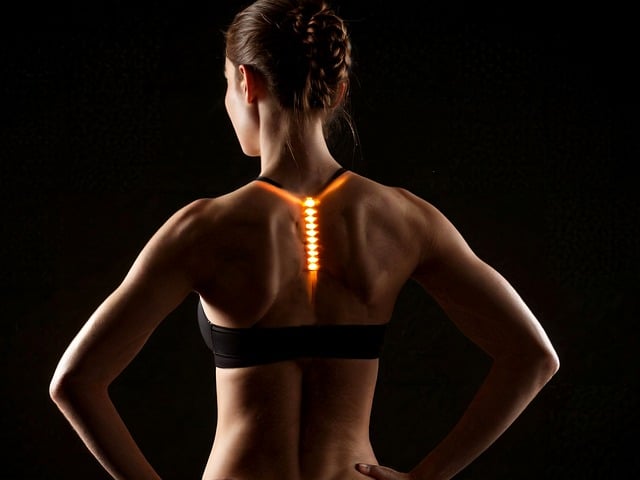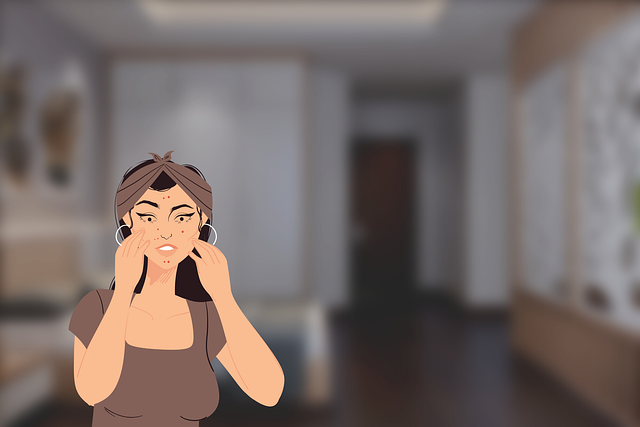Empowering Bergen County Recovery: Comprehensive Aftercare for Lasting Sobriety
Bergen County's commitment to effective aftercare programs is vital for reducing substance use…….
Over 15% US adults have used prescription painkillers not prescribed to them.
In the evolving landscape of healthcare services, ‘Bergen Aftercare’ emerges as a transformative concept, focusing on post-treatment support and rehabilitation. This article aims to explore every facet of Bergen Aftercare, offering an in-depth analysis that highlights its global impact, economic implications, technological innovations, and the challenges it faces. By delving into these aspects, we uncover the critical role this approach plays in enhancing patient outcomes and overall well-being.
Definition: Bergen Aftercare refers to a holistic set of services designed to support individuals post-treatment for various health conditions, with a primary focus on rehabilitation, reintegration into society, and long-term wellness. It encompasses a wide range of interventions tailored to meet the unique needs of each patient.
Core Components:
Rehabilitation Programs: These include physical therapy, occupational therapy, speech therapy, and other specialized treatments to restore functionality and improve quality of life.
Psychosocial Support: Addressing the emotional and psychological aspects of recovery through counseling, support groups, and community outreach programs.
Community Reintegration: Facilitating the patient’s return to daily activities, work, or education by providing necessary accommodations and support systems.
Long-term Monitoring: Regular check-ins and health assessments to track progress, identify relapses early, and ensure sustained recovery.
Historical Context:
The concept of Bergen Aftercare has evolved over time, influenced by advancements in medical science and a growing recognition of the importance of holistic healthcare. Historically, post-treatment care often focused solely on medication management. However, increased awareness of the psychological and social impacts of various health conditions led to the development of more comprehensive aftercare models. The term ‘Bergen’ here symbolizes a modern approach that draws from traditional healing practices while embracing innovative treatments and technology.
Bergen Aftercare has garnered international attention due to its potential to significantly reduce healthcare costs, improve patient satisfaction, and enhance recovery outcomes. Several key trends shape its global trajectory:
Increasing Adoption: Many countries are integrating Bergen Aftercare models into their healthcare systems, recognizing the value in preventing readmissions and promoting community healing.
Technological Integration: The use of telemedicine, mobile health apps, and wearable devices is rising, enabling remote monitoring and personalized aftercare plans.
Cultural Adaptation: As Bergen Aftercare spreads globally, it undergoes cultural adaptation to suit diverse populations, ensuring its effectiveness across various healthcare settings.
Regional Impact:
Europe: Countries like Norway, Sweden, and the UK have been at the forefront of implementing Bergen Aftercare, with successful pilot programs showing reduced hospital stays and improved patient satisfaction.
North America: The US and Canada are witnessing growing interest in this model, driven by initiatives focused on improving chronic disease management and mental health support.
Asia: In countries like Japan and South Korea, Bergen Aftercare principles are being integrated into community-based healthcare systems, emphasizing preventive care and wellness.
The economic implications of Bergen Aftercare are multifaceted, impacting both healthcare providers and governments.
Market Dynamics:
Reduced Readmissions: By effectively managing post-treatment needs, Bergen Aftercare can significantly decrease hospital readmissions, easing the financial burden on healthcare facilities.
Cost-Effectiveness: In the long term, this approach may lead to lower overall healthcare costs as it prevents complications and promotes faster recovery.
Investment Patterns:
Healthcare investors are increasingly directing funds towards organizations and technologies that support Bergen Aftercare initiatives. This includes investments in telemedicine platforms, rehabilitation robotics, and digital health solutions.
Government Support:
Governments worldwide are recognizing the economic and social benefits of Bergen Aftercare. They are allocating resources to develop and implement these programs, seeing them as a means to improve public health and reduce long-term healthcare expenditure.
Technology plays a pivotal role in modernizing Bergen Aftercare, enhancing its accessibility and effectiveness. Some significant advancements include:
Telemedicine: Remote consultations and therapy sessions enable patients in remote areas to access specialized care, improving continuity of treatment.
Wearable Health Devices: Fitness trackers, smart watches, and medical-grade sensors provide real-time health data, allowing for early intervention and personalized care plans.
Mobile Health Apps: These apps facilitate patient engagement by offering educational resources, self-monitoring tools, and easy access to healthcare providers.
Virtual Reality (VR) Therapy: VR is used for pain management, exposure therapy for mental health conditions, and rehabilitation exercises, providing immersive therapeutic experiences.
The development and implementation of Bergen Aftercare are guided by various policies and regulations, which vary across jurisdictions.
Key Policies:
National Healthcare Strategies: Many countries have national healthcare plans that emphasize preventive care and community-based rehabilitation, directly influencing the adoption and structure of Bergen Aftercare programs.
Mental Health Legislation: In regions with robust mental health policies, Bergen Aftercare practices often include enhanced psychological support and community outreach.
Regulatory Frameworks:
Licensing and Accreditation: Healthcare facilities offering Bergen Aftercare services must adhere to strict licensing requirements, ensuring quality of care.
Data Privacy Laws: As technology advances, data privacy becomes a critical consideration. Regulations like GDPR in Europe shape how patient data is collected, stored, and shared for aftercare purposes.
Despite its numerous benefits, Bergen Aftercare faces several challenges that require strategic solutions:
Stigma and Misunderstanding: There persists a misconception that aftercare is only for those with severe or chronic conditions. Educating the public and healthcare professionals about the breadth of Bergen Aftercare’s applications is crucial.
Resource Allocation: Adequate funding and staffing are essential for successful implementation. Governments and healthcare organizations must prioritize resource allocation to ensure accessible, high-quality aftercare services.
Digital Divide: The digital nature of many technological advancements may exclude individuals with limited access to technology or digital literacy skills. Addressing this divide is vital to ensuring equitable access to Bergen Aftercare.
Proposed Solutions:
Public Awareness Campaigns: Educate the public about the benefits of early intervention and holistic care through targeted campaigns and community outreach.
Partnerships with Tech Companies: Collaborate with technology providers to develop affordable, user-friendly solutions that cater to diverse demographics.
Training Programs: Implement comprehensive training for healthcare professionals to address cultural competencies and digital literacy skills.
URI is a city-wide program that provides integrated Bergen Aftercare services for individuals recovering from substance use disorders. The initiative combines residential treatment, outpatient therapy, job training, and housing support. URI’s success lies in its community-based approach, leveraging local resources to create personalized aftercare plans. As a result, URI has achieved a 75% reduction in relapse rates within the first year of participation.
Japan’s community care model exemplifies the successful integration of Bergen Aftercare into a highly developed healthcare system. This program focuses on supporting individuals with chronic conditions, such as diabetes and hypertension, through home visits, group exercises, and educational workshops. The approach has led to significant improvements in patient adherence to treatment plans and overall health outcomes.
Australia’s digital aftercare platform, ‘ConnectCare’, offers remote monitoring and personalized care plans for patients with various conditions. The app allows healthcare providers to track patient progress, communicate securely, and adjust treatment as needed. Early data shows improved patient engagement and reduced hospital readmissions, particularly among older adults with multiple morbidities.
The future of Bergen Aftercare is promising, with several growth areas and emerging trends shaping its evolution:
Personalized Medicine: Advancements in genomics and artificial intelligence will enable highly tailored aftercare plans based on individual patient profiles and preferences.
Telehealth Expansion: As technology advances, telehealth services are expected to become more sophisticated, offering immersive virtual experiences for therapy and rehabilitation.
Community Engagement: There will be a greater emphasis on community-based initiatives, leveraging social support networks to enhance recovery and reintegration.
Digital Health Literacy: Efforts to improve digital literacy among all age groups will ensure wider access to online aftercare resources and services.
Bergen Aftercare represents a transformative approach to healthcare, emphasizing holistic support for individuals post-treatment. Its global impact, economic benefits, technological innovations, and potential to address critical health challenges make it an increasingly important aspect of modern healthcare systems. As we continue to navigate the complexities of healthcare delivery, Bergen Aftercare stands as a beacon of hope, guiding us towards more comprehensive and effective patient care.
Q: What sets Bergen Aftercare apart from traditional rehabilitation?
A: Bergen Aftercare goes beyond traditional rehab by providing a holistic approach that considers physical, psychological, and social aspects of recovery. It focuses on long-term wellness and community reintegration, not just short-term healing.
Q: How does technology enhance Bergen Aftercare?
A: Technology improves accessibility, personalization, and continuity of care. Telemedicine, mobile apps, and wearable devices enable remote monitoring and support, while VR therapy offers immersive experiences for rehabilitation and pain management.
Q: Can you explain the role of community in Bergen Aftercare?
A: Community plays a crucial role by providing social support, resources, and reintegration opportunities. Support groups, community outreach programs, and fostering connections with peers enhance recovery and prevent isolation.
Q: Are there economic benefits to implementing Bergen Aftercare?
A: Absolutely. By reducing readmissions, preventing complications, and promoting faster recovery, Bergen Aftercare can lead to significant cost savings for healthcare systems while improving patient satisfaction and outcomes.

Recovery Aftercare Programs in Bergen County are vital for preventing relapse and promoting long-ter…….

After initial addiction treatment, continued care through comprehensive recovery aftercare programs…….

In Bergen County, robust aftercare programs are vital for individuals recovering from substance use…….

Recovery from substance use disorders is a continuous process, with a high risk of relapse within th…….

Bergen County prioritizes long-term sobriety through comprehensive recovery aftercare programs that…….